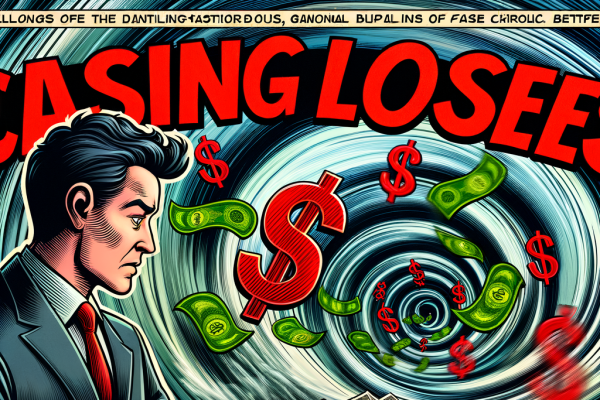Gambling is a uniquely human behavior that intertwines chance, strategy, and psychology. Understanding the intricate psychological drivers behind gambling behavior can illuminate why individuals engage in this high-stakes activity and how their mindset influences their experiences in casinos. This article delves into various psychological aspects of winning and losing in casinos, including cognitive biases, emotional responses, risk perception, social dynamics, and strategies for managing psychological effects.
Understanding the Psychological Drivers of Gambling Behavior
At the heart of gambling lies a complex interplay of motivations that drive individuals to both play and persist in gambling activities. The excitement of risk-taking, the allure of potential financial gain, and the escapism offered by casinos are significant motivators. Many gamblers are propelled by a desire to experience thrill and entertainment, viewing gambling as a form of leisure. This notion is often reinforced by the sensory stimulation of casinos, from vivid lights to engaging sounds, which create an immersive environment that heightens excitement.
Another psychological driver of gambling behavior is the need for social interaction. Many people gamble in groups or with friends, seeking camaraderie and shared experiences. The social aspect can amplify the fun and enjoyment of gambling, but it can also lead to peer pressure to continue wagering. Understanding that gambling can be both a solitary and social experience highlights the multifaceted nature of this behavior and its psychological implications.
Additionally, the concept of escapism plays a crucial role in why individuals engage in gambling. For many, casinos provide a temporary escape from daily life pressures and challenges. This desire to disconnect can lead to an over-reliance on gambling as a coping mechanism, which may exacerbate feelings of distress and lead to eventually negative outcomes.
Lastly, the concept of self-identity cannot be overlooked. For some gamblers, winning can bolster self-esteem and affirm their self-worth. Conversely, losing may lead to feelings of inadequacy or shame. This internalization of gambling outcomes can dictate future behavior and decision-making at the tables, creating a cycle of high emotions that are often difficult to break.
The Role of Cognitive Biases in Winning and Losing
Cognitive biases significantly shape gambling behavior by influencing how individuals process information about their wins and losses. One prevalent bias is the “gambler’s fallacy,” where individuals believe that past outcomes affect future results. For instance, if a player has lost several hands in a row, they may irrationally believe that a win is “due,” leading to increased risk-taking and potential losses.
Another cognitive bias prevalent in gambling is the “illusion of control.” Many gamblers, particularly in skill-based games, overestimate their ability to influence outcomes. They may believe that certain strategies can consistently lead to wins, despite the inherent randomness of chance games. This overconfidence can lead to sustained gambling, even in the face of adverse outcomes.
The “hot hand fallacy” is another cognitive bias that affects how gamblers perceive winning streaks. Players may believe they are “on a roll” after experiencing a few wins, leading them to take larger risks. Conversely, after experiencing a loss, they might withdraw from the activity altogether, believing they are on a “cold streak.” Both biases can contribute to erratic betting patterns and emotional volatility.
Lastly, the “confirmation bias” plays a significant role in how gamblers interpret their experiences. Players may only remember or give weight to instances that confirm their beliefs about luck or skill while ignoring evidence that contradicts those beliefs. This selective memory can perpetuate gambling behavior, as individuals seek out patterns that support their theories about winning and losing.
Emotional Responses: Euphoria and Despair in Gambling
The emotional landscape of gambling is characterized by extreme highs and lows, often resembling a rollercoaster of euphoria and despair. Winning induces a rush of excitement and joy, often referred to as “the gambler’s high.” This euphoric state can lead to impulsive behavior, spurring individuals to gamble even more to chase the exhilarating feeling of winning. The brain releases dopamine, reinforcing the connection between gambling and pleasure, thereby increasing the likelihood of repeated gambling behavior.
Conversely, losing can evoke profound feelings of despair and frustration. The emotional aftermath of a significant loss can lead to regret, guilt, and even depression. This emotional turmoil can drive some gamblers to seek solace in further gambling, creating a dangerous cycle of chasing losses in an attempt to regain what was lost. Such behavior can lead to financial ruin and a deterioration of one’s mental health, highlighting the need for awareness in managing emotions.
Moreover, the social context in which gambling occurs can amplify emotional responses. Winners may celebrate with friends, further enhancing their joy, while losers may experience isolation and shame, especially if their losses are public. The disparity in emotional experiences between winners and losers can create a stark divide in social dynamics, further complicating the psychological experience of gambling.
Lastly, the timing of emotional responses is crucial in understanding gambling behavior. Immediate wins can lead to impulsive decisions, while delayed losses may result in denial or rationalization. Recognizing these emotional triggers can help gamblers make more informed decisions and develop healthier gambling habits.
How Risk Perception Influences Casino Decision-Making
Risk perception plays a vital role in decision-making processes in casinos. Individuals often evaluate the potential rewards against the perceived risks of gambling, which can be influenced by personal experiences, cognitive biases, and emotional states. For instance, if a player views a game as low-risk due to previous successes, they may be inclined to wager larger amounts, ignoring the inherent probabilities involved.
Additionally, the framing of information can affect risk perception. For example, if a casino advertises a game with a high payout potential, players may underestimate the odds against winning. Conversely, if a player perceives a game as risky, they may engage in overly cautious behavior, limiting their potential for wins. The way probabilities are presented can significantly alter gambling decisions, emphasizing the role of psychology in risk assessment.
Understanding the concept of loss aversion is also crucial in this context. Loss aversion refers to the tendency for individuals to prefer avoiding losses over acquiring equivalent gains. This psychological principle can cause gamblers to make conservative choices, fearing the emotional pain of losing more than the joy of winning. This behavior can lead to erratic betting patterns, as players oscillate between aggressive and conservative strategies based on their current emotional state.
Lastly, external factors, such as peer influences and social norms, can shape risk perception. Observing others winning or losing can alter an individual’s assessment of risk, leading them to mimic behaviors they see in those around them. This social component adds another layer of complexity to how risk is perceived and acted upon in casino environments.
The Impact of Social Dynamics on Gambling Success Rates
Social dynamics play an essential role in shaping gambling experiences and success rates. The presence of friends or peers can influence individual behavior, creating an environment where people are more likely to take risks or continue gambling despite losses. This social reinforcement can either uplift individuals or lead them to make poor decisions rooted in group mentality.
Moreover, social comparison is another psychological factor that affects gambling behavior. Gamblers often compare their wins and losses to those of others, which can lead to feelings of inadequacy or superiority. For instance, a player who sees friends winning may feel pressure to continue playing aggressively to match their success, potentially leading to reckless behavior. Conversely, witnessing losses among peers can deter individuals from taking risks, reinforcing conservative strategies.
The role of social identity also emerges in gambling contexts. Gamblers often develop a sense of belonging within specific groups, leading to heightened investment in their performance. This social identity can amplify emotional responses to wins and losses, further impacting decision-making. Winners may feel a sense of pride and validation, while losers may experience shame or seek to reclaim their status within the group.
Lastly, the influence of social norms cannot be overlooked. Cultural attitudes toward gambling vary widely, affecting how individuals perceive and engage in gambling activities. In environments where gambling is celebrated, individuals may feel emboldened to take risks, while in more conservative contexts, they may be more cautious or hesitant to participate. Understanding these social dynamics is crucial for fostering responsible gambling behavior.
Strategies for Managing Psychological Effects in Casinos
Managing the psychological effects of gambling is vital for promoting healthier habits and preventing addiction. One effective strategy is setting clear limits on time and money before entering a casino. By establishing a budget and adhering to it, individuals can mitigate impulsive decision-making driven by emotional highs and lows. This pre-commitment helps create a sense of control, reducing the likelihood of chasing losses.
Another valuable strategy is practicing mindfulness. By staying present and aware of one’s thoughts and emotions during gambling, individuals can make more rational decisions and avoid being swept away by euphoria or despair. Mindfulness techniques can help individuals recognize cognitive biases at play and reassess their motivations for gambling, enabling them to break harmful patterns.
Additionally, seeking social support is crucial for managing the psychological effects of gambling. Engaging with friends or family members who understand the dynamics of gambling can provide valuable perspectives and accountability. Support groups or counseling services can also offer a safe space to discuss experiences and develop healthier coping mechanisms.
Finally, educating oneself about gambling odds and probabilities is essential. Understanding the mathematics behind games can demystify the allure of gambling and empower individuals to make informed decisions. By recognizing that outcomes are often out of their control, gamblers can cultivate a healthier mindset and approach gambling as entertainment rather than a means to financial gain.
| Psychological Factors | Positive Effects | Negative Effects |
|---|---|---|
| Euphoria (Winning) | Increases enjoyment, reinforces behavior | Impulsivity, risk-seeking behavior |
| Despair (Losing) | None | Guilt, depression, chasing losses |
| Cognitive Biases | Can motivate play | Distorted perception of odds, overconfidence |
| Social Dynamics | Supportive environment | Peer pressure, unhealthy comparisons |
| Risk Perception | Informed decision-making | Misjudgment of odds, impulsive betting |
Q&A Section
Q: What psychological factors contribute to gambling addiction?
A: Cognitive biases, emotional highs and lows, social dynamics, and risk perception all play crucial roles in reinforcing gambling behavior, leading to addiction.
Q: How can I manage my gambling habits effectively?
A: Set clear limits on time and money, practice mindfulness, seek social support, and educate yourself about gambling odds.
Q: What role does social influence play in gambling?
A: Social dynamics can amplify or deter gambling behaviors, as individuals may feel pressure to conform to group norms or compare their performance to peers.
Q: How can cognitive biases affect my gambling decisions?
A: Cognitive biases can distort your perception of odds and outcomes, leading you to make irrational decisions, such as believing you are “due” for a win after losing.
Q: Why is emotional regulation important in gambling?
A: Managing emotions helps prevent impulsive decisions influenced by euphoria or despair, allowing for more rational choices and reducing the risk of addiction.






